Table of Contents
As we navigate through 2025, the importance of cybersecurity awareness has never been more evident. In the digital age, while cybersecurity technologies like firewalls and encryption play a vital role in safeguarding data, human behavior remains the most significant factor in preventing cyber-attacks. Cybercriminals often target individuals and employees through methods such as phishing, social engineering, and malware, making cybersecurity awareness critical for everyone in an organization.
A Cybersecurity Awareness Certification, or an It Specialist Cybersecurity Certification, empowers individuals and businesses to recognize, prevent, and respond to cyber threats effectively. In this blog, we will explore the importance of this certification, the core topics it covers, career opportunities it unlocks, and how to pursue it in 2025.
What Is Cybersecurity Awareness Certification?
Cybersecurity Awareness Certification is designed to educate individuals about identifying, avoiding, and responding to common cyber threats. Unlike highly technical certifications, this certification focuses on building awareness and fostering responsible online behavior. It’s perfect for anyone who interacts with the internet and digital platforms, including employees, managers, and even individuals seeking to protect their personal data.
The certification covers essential concepts such as password hygiene, secure browsing practices, and the importance of recognizing phishing attempts. As human error is often the weakest link in an organization’s cybersecurity defense, this certification is crucial for businesses that aim to reduce security breaches caused by avoidable mistakes.
For professionals, this certification serves as a solid foundation for advanced cybersecurity training, while for organizations, it provides an essential layer of security by ensuring that all employees are equipped with the knowledge to act responsibly online.
Why Is Cybersecurity Awareness Important?
Cybersecurity is often only as strong as its weakest link—and that link is often human error. Despite sophisticated technical defenses, a lack of awareness can leave even the best-protected systems vulnerable. Here’s why Cybersecurity Awareness Certification is so important:
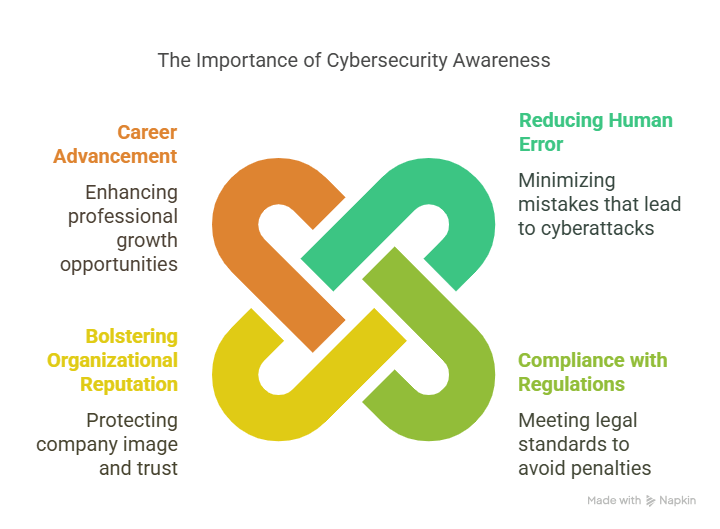
1. Reducing Human Error
Research shows that human error accounts for approximately 85% of all successful cyberattacks. When employees fail to recognize phishing emails or click on harmful links, it can lead to significant security breaches. By training employees to recognize potential threats, businesses can drastically reduce the risk of a successful attack.
2. Compliance with Regulations
Many industries require organizations to implement cybersecurity awareness programs to comply with GDPR, HIPAA, and other regulatory frameworks. Earning a Cybersecurity Awareness Certification ensures that organizations meet these standards and reduces the likelihood of regulatory penalties.
3. Bolstering Organizational Reputation
A data breach can do more than just compromise information—it can destroy a company’s reputation and trust with clients. Certified cybersecurity-aware employees are less likely to make mistakes that could lead to breaches, helping to safeguard the company’s reputation in a highly competitive market.
4. Career Advancement
For professionals looking to grow in the cybersecurity field, Cybersecurity Awareness Certification is a valuable credential. It helps demonstrate foundational knowledge of cybersecurity and can act as a stepping stone toward more advanced roles in cybersecurity management or IT security leadership.
By investing in cybersecurity awareness training, organizations and individuals are proactively preparing for the evolving landscape of cyber threats.
Core Topics in Cybersecurity Awareness Certification
A typical Cybersecurity Awareness Certification program will cover a wide range of topics designed to equip participants with the knowledge to protect themselves and their organizations from cyber threats. These core areas are essential for reducing the risk of cyberattacks:
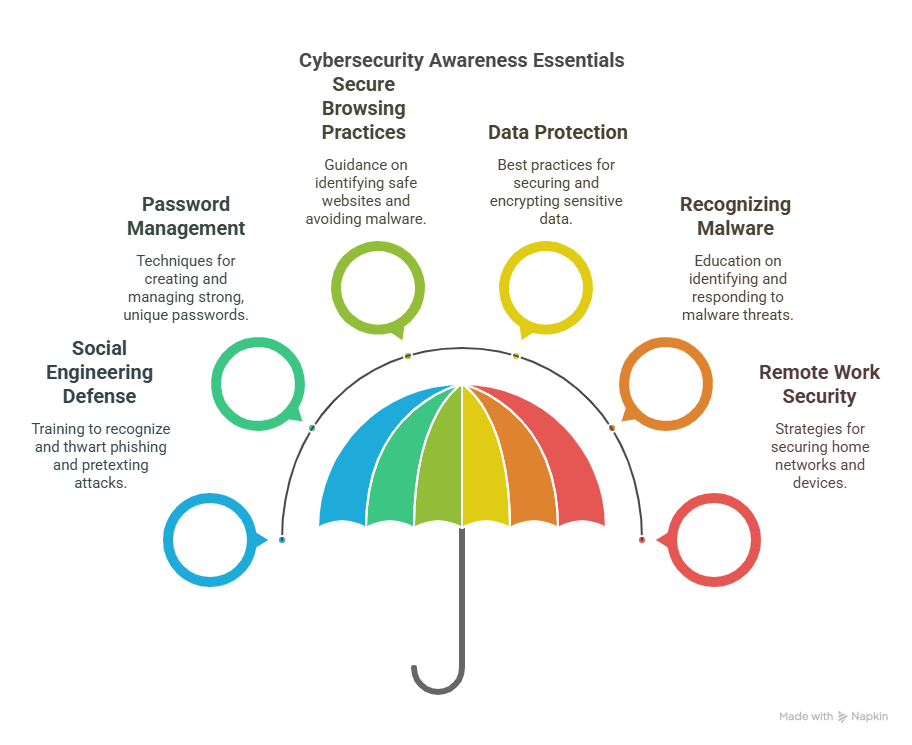
1. Social Engineering Defense
Social engineering attacks, such as phishing and pretexting, remain some of the most common forms of cyberattacks. Training helps individuals recognize phishing emails, fraudulent phone calls, and deceptive links that may compromise sensitive information.
2. Password Management
Weak or reused passwords are one of the easiest ways for hackers to access accounts. Password hygiene is critical, and the certification will teach participants about creating strong, unique passwords and using password managers to securely store them.
3. Secure Browsing Practices
Malicious websites and downloads can infect systems with malware. The certification educates individuals on how to recognize safe websites and avoid suspicious downloads, ultimately reducing the likelihood of malware infections.
4. Data Protection
Data is the lifeblood of any organization. Training includes best practices for securing sensitive information, backing up data, and ensuring proper encryption methods are in place to protect data at rest and in transit.
5. Recognizing Malware
Spotting malware is crucial for preventing data breaches and attacks. This section of the training teaches participants how to recognize the signs of a compromised device and how to respond appropriately to prevent further damage.
6. Remote Work Security
With remote work becoming more prevalent, home network security is essential. Training covers the steps individuals can take to secure their home networks and personal devices, including using VPNs, firewalls, and other security measures.
Career Opportunities with Cybersecurity Awareness Certification
While a Cybersecurity Awareness Certification is not as technically advanced as certifications like CISSP or CEH, it provides a solid foundation for various impactful roles within the cybersecurity field. Here are some positions you could pursue with this certification:
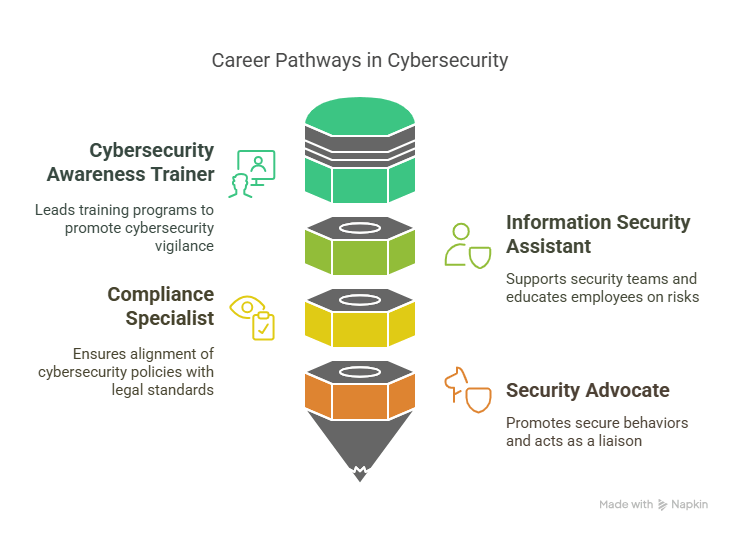
1. Cybersecurity Awareness Trainer
Trainers lead internal training programs in organizations to foster a culture of cybersecurity vigilance. Trainers deliver workshops, create educational resources, and measure the success of awareness campaigns. This is a highly important role in ensuring that employees are kept up to date with cybersecurity best practices.
2. Information Security Assistant
Information Security Assistants support security teams by helping to implement cybersecurity best practices. They also work to educate employees about common risks and the importance of maintaining secure behaviors in the workplace.
3. Compliance Specialist
A Compliance Specialist ensures that organizations meet the cybersecurity requirements outlined in various regulations, such as GDPR or CCPA. They play a crucial role in aligning internal cybersecurity policies with legal standards.
4. Security Advocate
Security advocates promote secure behaviors across organizations by acting as liaisons between IT teams and non-technical staff. They ensure that employees understand how to recognize and report threats like phishing emails and the importance of system updates.
These roles are great starting points for those looking to move into more technical cybersecurity positions in the future. With cybersecurity awareness being at the core of many organizations’ defense strategies, these roles will continue to grow in demand.
How Does Cybersecurity Awareness Certification Work?
Obtaining Cybersecurity Certification Test and Cybersecurity Awareness Certification is a straightforward process that typically involves the following steps:
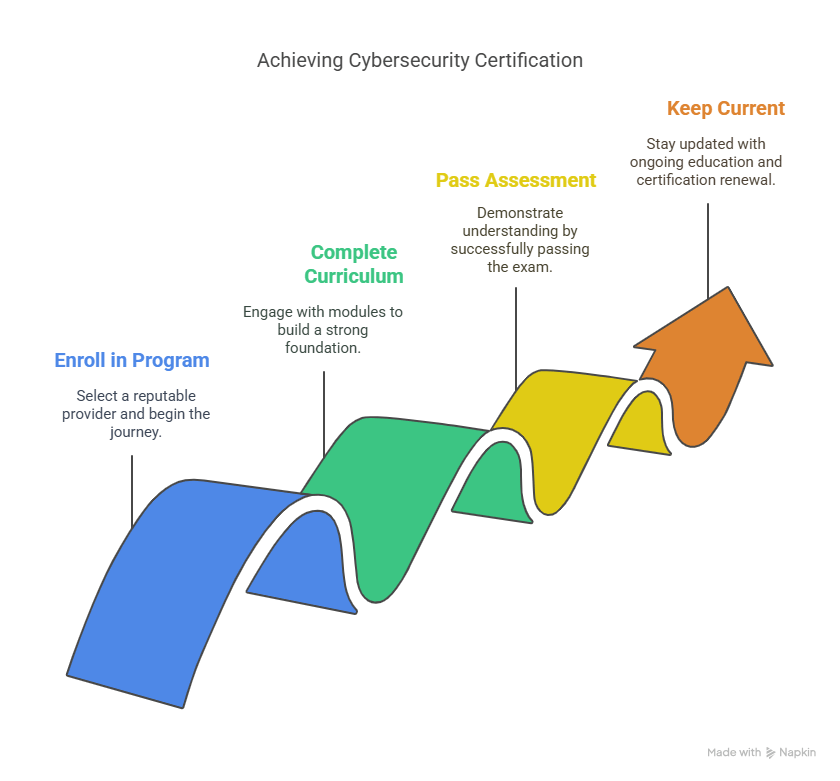
1. Enroll in a Program
First, select a reputable provider, such as ACSMI, which offers comprehensive training programs. Look for certifications that provide well-rounded curricula and include interactive activities to enhance learning.
2. Complete the Curriculum
Participants will work through various modules that cover the core topics outlined above. Many programs offer online learning options, allowing participants to learn at their own pace and convenience.
3. Pass the Assessment
Upon completing the curriculum, candidates must pass an assessment or exam to demonstrate their understanding of cybersecurity best practices. This validates their ability to recognize and respond to cyber threats effectively.
4. Keep Current
Cybersecurity is a constantly evolving field. Once certified, it’s important to renew your certification periodically and participate in ongoing workshops or refresher courses to stay up to date with emerging threats and best practices.
Final Thoughts
Cybersecurity Awareness Certification is a crucial tool in the battle against cyber threats. It equips individuals and organizations with the knowledge to recognize and mitigate risks, ultimately fostering a more secure digital environment. This certification is a great starting point for those entering the cybersecurity field or looking to bolster their organization’s defenses. For professionals, it also acts as a foundation for more advanced certifications.
Organizations that prioritize cybersecurity awareness foster a culture of vigilance that significantly reduces security risks. Whether you’re just starting your cybersecurity journey or looking to enhance your team’s knowledge, this certification is an invaluable investment.
To explore more advanced cybersecurity training, check out ACSMI, which offers 400+ modules for technical roles. Enroll today and start securing your future in cybersecurity!
FAQs About Cybersecurity Awareness Certification
1. Who should get the Certification?
This certification is ideal for individuals looking to understand the basics of cybersecurity, as well as organizations looking to educate their employees about online threats.
2. How long does the certification take?
Programs usually last 1-3 days, offering a concentrated yet comprehensive learning experience.
3. Is it useful for career advancement?
Yes! It opens doors to roles in training, compliance, and entry-level security positions. It’s also a solid stepping stone for pursuing more advanced cybersecurity certifications.
4. Do I need technical skills to take this certification?
No technical skills are required. The certification focuses on awareness, behavior change, and best practices, making it accessible to all.
5. How does it differ from ACSMI Certification?
While Cybersecurity Awareness Certification focuses on foundational knowledge, ACSMI Certification offers in-depth, technical training with over 400 modules tailored to advanced IT and cybersecurity expertise.
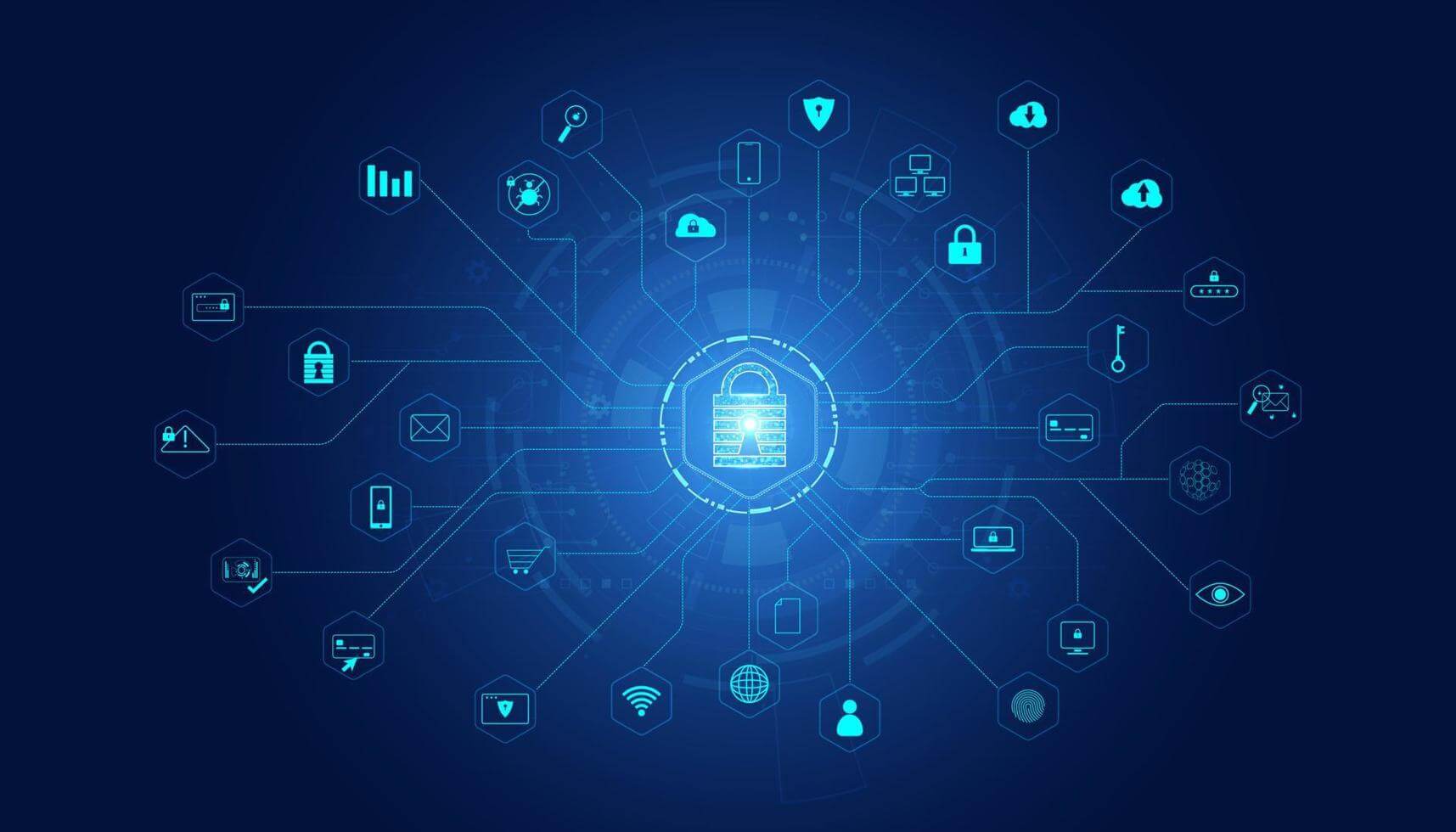
Leave a Reply